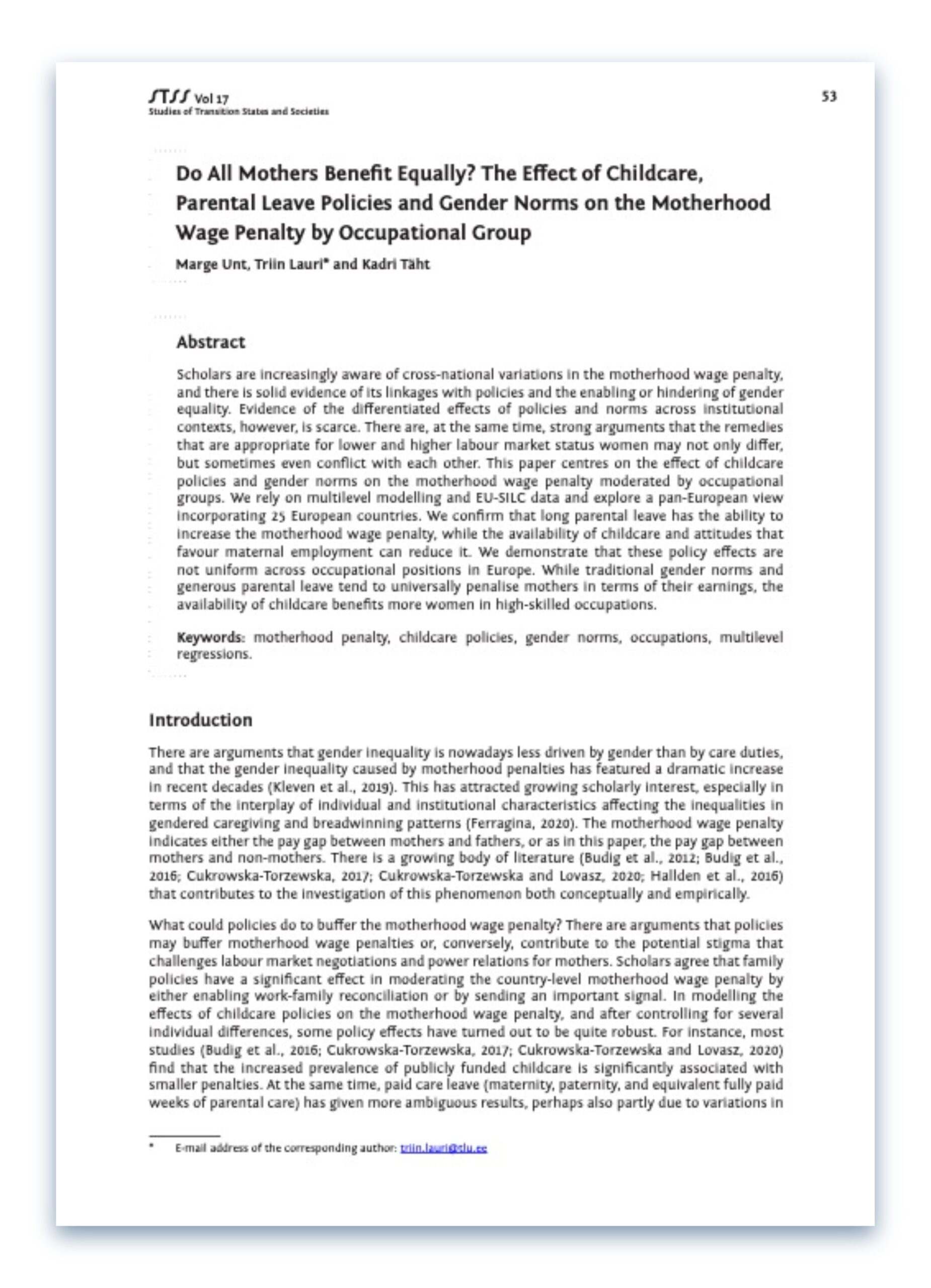
Do All Mothers Benefit Equally? The Effect of Childcare, Parental Leave Policies and Gender Norms on the Motherhood Wage Penalty by Occupational Group
Scholars are increasingly aware of cross-national variations in the motherhood wage penalty, and there is solid evidence of its linkages with policies and the enabling or hindering of gender equality. Evidence of the differentiated effects of policies and norms across institutional contexts, however, is scarce. There are, at the same time, strong arguments that the remedies that are appropriate for lower and higher labour market status women may not only differ, but sometimes even conflict with each other. This paper centres on the effect of childcare policies and gender norms on the motherhood wage penalty moderated by occupational groups. We rely on multilevel modelling and EU-SILC data and explore a pan-European view incorporating 25 European countries. We confirm that long parental leave has the ability to increase the motherhood wage penalty, while the availability of childcare and attitudes that favour maternal employment can reduce it. We demonstrate that these policy effects are not uniform across occupational positions in Europe. While traditional gender norms and generous parental leave tend to universally penalise mothers in terms of their earnings, the availability of childcare benefits more women in high-skilled occupations.
By Marge Unt, Triin Lauri & Kadri Täht.
Childcare Helps, but Not Equally: Access to early childcare reduces the motherhood wage penalty, especially for highly skilled women. However, low-skilled mothers benefit less due to inflexible job conditions, limiting the reach of public support and reinforcing occupational inequality.

Long Leave and Norms Worsen Penalties: Generous parental leave and traditional gender norms intensify the motherhood wage penalty across all job sectors. These factors lead to skill depreciation and reinforce caregiver stereotypes, affecting all working mothers regardless of occupation.

Childcare Helps, but Not Equally: Access to early childcare reduces the motherhood wage penalty, especially for highly skilled women. However, low-skilled mothers benefit less due to inflexible job conditions, limiting the reach of public support and reinforcing occupational inequality.

